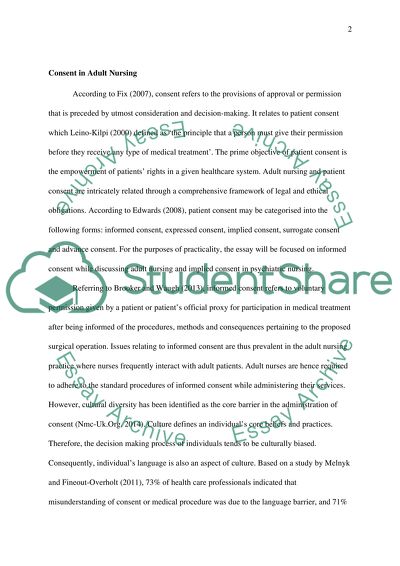Cite this document
(“The Importance of Consent in Relation to Adult Nursing Essay”, n.d.)
The Importance of Consent in Relation to Adult Nursing Essay. Retrieved from https://studentshare.org/nursing/1647770-issues-influencing-nursing-practice
The Importance of Consent in Relation to Adult Nursing Essay. Retrieved from https://studentshare.org/nursing/1647770-issues-influencing-nursing-practice
(The Importance of Consent in Relation to Adult Nursing Essay)
The Importance of Consent in Relation to Adult Nursing Essay. https://studentshare.org/nursing/1647770-issues-influencing-nursing-practice.
The Importance of Consent in Relation to Adult Nursing Essay. https://studentshare.org/nursing/1647770-issues-influencing-nursing-practice.
“The Importance of Consent in Relation to Adult Nursing Essay”, n.d. https://studentshare.org/nursing/1647770-issues-influencing-nursing-practice.


